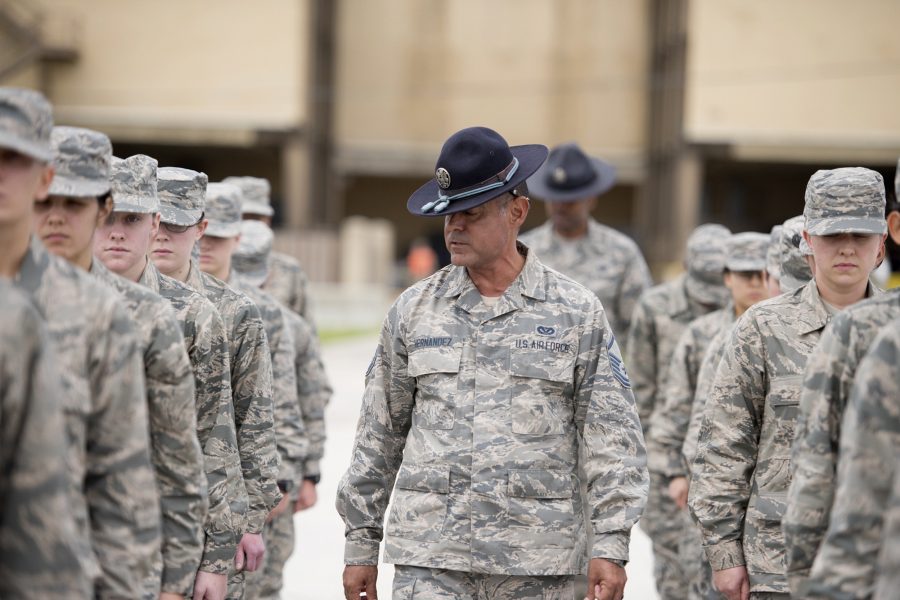Trainees will now graduate Basic Military Training in seven weeks instead of eight and a half, as the Air Force looks to mitigate the coronavirus outbreak.
The temporary move is intended to “enhance social-distancing requirements” at Joint Base San Antonio-Lackland, Texas, for trainees, instructors, civilians, and contractors, according to an Air Education and Training Command release. Trainees will ship to their technical training assignment the day after graduation.
BMT previously had a 7.5 week curriculum, which was extended in 2018 to allow for an increased focus on physical training, weapons handling, and “instilling a warrior ethos,” Lackland officials said.
This change is the latest in a series of adjustments to Air Force training in light of COVID-19. For example, guests will not be able to attend graduations, which will be livestreamed instead.
Beginning this week, the service will send 60 BMT trainees to Keesler Air Force Base, Miss., in an effort to reduce the size of BMT classes and to see how another base might handle BMT. Having multiple locations can provide relief to the staff at Lackland, provide surge capacity, and make the training pipeline more agile, service officials said. At Keesler, trainees will go through an even shorter six-week curriculum, which is designed to be a 180-day “surge timeline,” and while it is sustainable, it is not expected to be enduring, according to AETC.
Beginning April 7, the service will take in 460 recruits—400 at Lackland and 60 at Keesler—as opposed to the typical class size of approximately 700.
Lackland also has implemented a 14-day restriction of movement for new recruits upon arrival to screen for COVID-19 symptoms, and there’s enhanced screening and intervention before inprocessing and throughout training. So far, five of 6,000 airmen who have arrived for BMT have tested positive for the virus, Chief of Staff Gen. David Goldfein said.
The service paused the arrivals of BMT trainees last week, delaying the arrival of those scheduled to report March 31, to allow for a deep-clean of dormitories, dining facilities, and other infrastructure, according to AETC.

